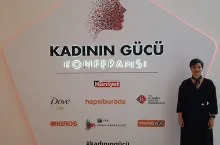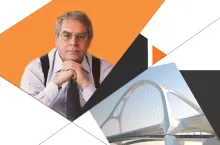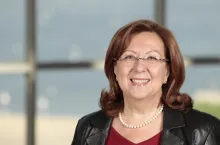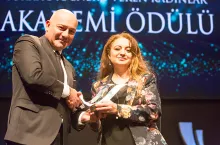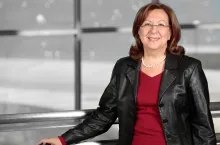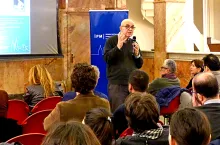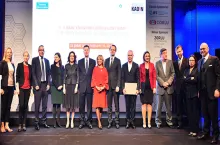Sabancı University Acting President Zehra Sayers receives International Award

Sabancı University Acting President Zehra Sayers was chosen for the 2017 Rammal Medal.
The Rammal Medal recognizes a scientist, group of scientist or an institution for outstanding contributions to science in the Mediterranean region, and its 2017 recipient Professor Zehra Sayers, Acting President of Sabancı University, is also the Chair of the Scientific Advisory Committee of SESAME.
Zehra Sayers will be presented her award at ESOF2018, the EuroScience Open Forum, that will take place in Toulouse, France between July 9 and 14, 2018.
The Rammal Medal Jury stated the reason for awarding the 2017 medal to Professor Sayers as the excellence of her teaching activities in Turkey as well as the advances she has made in research in Molecular Biology using synchrotron radiation at the EMBL Laboratory in Hamburg.
The Jury also placed great emphasis on the dedication towards advancing the SESAME project in Jordan, which is of immense benefit to the whole scientific community of the Mediterranean region and which will greatly enhance the technological capabilities of the Middle East. The SESAME project has been established to provide new cultural and scientific links between the countries of the Mediterranean area and thereby to encourage peaceful collaboration between them.
Quoting from the Jury report by Rammal Medal Jury President Prof. Lauritz Holm-Nielsen:“The Jury ... wanted to honour now the woman who apart from her own outstanding scientific work has done more than anyone else to bring the project to the next stage: from collaboration at the political level and at the construction of the facility to getting the science going by ensuring high quality exciting projects of young and experienced scientists from the region. She has done so as Chair of the Scientific Advisory Committee of SESAME."
About the Rammal Medal
The Rammal Award is named after a Lebanese researcher, Rammal Rammal (1951-1991), whose career was international and who devoted his life, not only to advancing science, but also to fostering good human relations through the pursuit and exchange of knowledge, especially in the Mediterranean region. Thus the Jury is also very attentive to the ethical and moral dimensions of scientific work, and attaches much importance to the part science can play in relieving social and political tensions in or between countries of the Mediterranean area. The Rammal Award recognizes a scientist, group of scientist or an institution not only for outstanding contributions to science, but also for positive actions in a broader social or educational context and especially in the promotion of collaboration and understanding in the Mediterranean region and neighboring countries.
Scientific cooperation for peace in the Middle East
Eight countries join forces for SESAME, the first synchotron-light laboratory

SESAME (Synchrotron-light for Experimental Science and Applications in the Middle East) is a “third-generation” synchrotron light source that was officially opened in Allan (Jordan) on 16 May 2017. It is the Middle East's first major international research center. SESAME aims to provide opportunities to researchers from all Middle Eastern countries to leave their differences aside and speak the universal "scientific language" to know each other better. Supported by the international scientific community, the Sesame Project hopes to change the fate of the Middle East via science, and provide a different future for young people in the region who are involved in science. As stated by Professor Zehra Sayers, the project also aims to prevent or reverse the brain drain of young scientists from the region.
What is a synchotron laboratory?
Synchrotron light sources are 'user facilities' where scientists from universities and research institutes to work in collaboration with scientists from other centers or countries. Although there are nearly 70 synchtron light sources in Europe, North America and Asia, there were none in the Middle East. Synchrotrons are relatively expensive devices which are frequently built by international collaborations, such as the ESRF in Grenoble, France, which provide a 24-hour light source.
The founders of SESAME
The founding members of SESAME (Synchrotron light for Experimental Science and Applications in the Middle East) are Cyprus, Jordan, Egypt, Iran, Pakistan, Turkey, Israel, and Palestine. Membership is made by means of intergovernmental agreements, and the SESAME Council is composed of delegates from member countries who provide direction to the future of the lab.
The SESAME story
Although SESAME entered service in May 2017, the idea goes back to the early 1980s, when eminent scientists such as the Pakistani Nobel Laureate Abdus Salam recognized the need for a synchotron light source in the Middle East to attract high technology to the region and bring together researchers of different disciplines. This need was also felt by the CERN (European Organization for Nuclear Research), and when the idea emerged that the BESSYI synchtron in Berlin, which was due for closure in 1997, could be given as a grant to the Middle East, the project became viable. The SESAME project officially began as a UNESCO initiative in June 1999 at a meeting of delegates from the Middle East and other countries. Another milestone was the decision to design and build a new 2.5 GeV storage ring instead of the 0.8 MeV storage ring acquired from BESSYI in 2002. This made SESAME a third-generation synchotron light source that is competitive on an international level.


